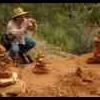Sign in to follow this
Followers
0

Yin/Yan and 5 Element theory quaint ancient ideas
By
thelerner, in General Discussion

By
thelerner, in General Discussion